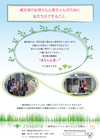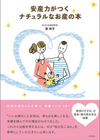
Community corporation J'espère: What we are.
Through supporting the pregnant women and mothers in the country on the national level, we hope to be making a step towards a world where all women feel supported from everyone to give birth and to bring up their children.
Our aim is to work towards building a society where laughter of children is felt all over the country, always.
Our corporation was formed one year after the disaster as a follow on project of "Tokyo Satogaeri Project?". As the former project did, we serve as a connecting point for the local midwifes working in aid activities in the disaster areas in order to make the support and aid towards pregnant women and mother victims in disaster area and each evacuated areas possible.
* Tokyo Satogaeri Project (Tokyo Home-Return Project) : One year long project to support pregnant women and mother victims run by Tokyo Midwives Association since the disaster.
About "Tohoku Kosodate Project" (Kosodate means parenting)
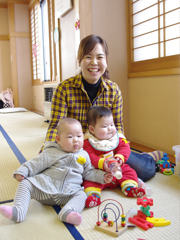
This project aims to work towards a realisation of a society where every mother victim of the disaster is able to feel protected and secure enough to bring up their children with a positive attitude.
The number of mothers who are experiencing postnatal depression is increasing in the areas where they have experienced disasters compared to the rest of the country. Also, we suspect around 30% of mothers have Post traumatic Stress Disorder and around 70% of the mothers seem to have anxieties or signs of depression. One of the reasons for this is lack of support towards pregnant women and new mothers after the disaster, as it was not an area that received immediate attention.
Our project aims to
- Provide collective and continuous support until the mother victims are able to bring up children with positive feelings towards their future.
- Provide information and raise awareness in the necessity of support towards mother and child victims
- Provide support to in order to regenerate communities as well as connecting such communities together in the disaster areas where the mother and child victim resides.
Our support is directed towards approximately 110 thousand pregnant women and mothers with children before the schooling age (six to seven years old) living in the disaster area (Iwate pref. Miyagi Pref. and Fukushima Pref.).
We operate aid work at local level in order for such women to be able to give birth and raise children in a safe and stable environment without anxieties and danger.
Our aid work is tailored to the needs of local people and community and mainly consists of education of pregnant women, home visits and support during visits such as parental guidance and counselling as well as mental emotional support and care.
Tohoku Kosodate Project Charter
Due to the post war economical development, Japan has become a country with a good living standard at all levels and an access to world's highest level of medical care. Hence the mortality rate at birth (of both baby and the mother) has declined and now it is one of the safest countries to give birth in the world.
However due to such medical advancement and the disappearing incidences of life threatening events surrounding pregnancy, birth and the postnatal era, as well as increasing awareness of "Pregnancy is not a disease" and "Birth is totally safe" people no longer feel…
Read whole charter
Due to the post war economical development, Japan has become a country with a good living standard at all levels and an access to world's highest level of medical care. Hence the mortality rate at birth (of both baby and the mother) has declined and now it is one of the safest countries to give birth in the world.
However due to such medical advancement and the disappearing incidences of life threatening events surrounding pregnancy, birth and the postnatal era, as well as increasing awareness of "Pregnancy is not a disease" and "Birth is totally safe" people no longer feel and have the awareness that pregnant women, mothers, babies and children are people who are weak, and need care as people who are at high risk.
On the other hand, with the increasing development in our economy, our birth rate continues to fall. Further more, a problem of declining population is also present in areas other than large cities. Tohoku area also experience such a problem in the decline of general population and decrease in birth rate accompanied by increasing in aging population, which was prevalent since before the East Japan Great Earthquake and Tsunami in 2011.
We all know very well that the relationship between the babies/young children and the mothers since the pregnancy era affects the individuals greatly in his/her life. It is also scientifically proven and reported that the emotional state of the mothers and the close families surrounding the small child will affect the emotional growth and the development of the child for a very long time.
Ordinarily, bringing up a child is a joy for a mother. However, even in a normal circumstance, if the mother feels that she alone has to protect the life of a small child, it will be very hard to bring up a child with a joy. One of the most significant reasons for mothers experiencing anxieties related to parenting is to be isolated. In reality, about 10% of the mothers experience postnatal depression and around 80% are worried about experiencing postnatal depression.
Hence it is of most importance that the mothers feel protected and valued by the surrounding community and have joy in parenting, in order to form a healthy relationship between the mother and the child as well as for the healthy development of the child. The mental and physical health of a mother is a very important "housing/shelter" for a child if it is to develop healthily to have a good life that in turn forms the base of a society.
The East Japan Great Earthquake and Tsunami that occurred on 11th March 2011 has left many mothers and guardians of children in isolation and in a state of anxiety without much support. Mothers who are nurturing the most precious treasure of any nation should be cared for with the most importance, though that was not the case in the disaster areas where there are many difficulties in living a normal life. However, even under such circumstances, mothers have faced a multitude of difficulties and hardships, with the courage in order to give birth to a child, symbolising the ray of hope, and to protect the new life. This great effort still continues in the shadow of a forever-delayed recovery of normal living conditions.
While working to support such mothers we have come to realise the following two points;
First, the problems that the mother victims in the Tohoku region are facing is only the surface of a problem that the all mothers in the country are feeling in day-to-day bases.
Secondly, in the event of disaster, total and continuous support in all levels of health (mental, emotional and physical) becomes very important. And even when support and care are given to the mothers on the mental and emotional level, it will take very many years for them to recover to a state where they can give birth and bring up children with pride and joy.
We J'espère establish "Tohoku Kosodate Project" (Kosodate means parenting) to give mother victims long term support in creating a safe and secure environment to give birth in. We also want to bring up children with the aim of children of Tohoku, who are to lead the future of the post disaster Tohoku region, to be able to become the pillars of society with a bright future.
Also, we will work to increase awareness at the national level the need for support towards the mother victims in the Tohoku region as well as general parenting support, and to make the public aware that good support towards the wellbeing of the mothers will lead not only to the support for children's wellbeing but for the society as a whole. Further more, we would like this project to be a good example and an experience that can be used as knowledge for the future support that we may need to provide as a nation towards other disasters that may happen in the future.
We are certain that projects such as ours will lead to the creation of a country where Japanese women will feel supported by entire nation in order to give birth and bring up a child with the feeling of security and joy, weather in disastrous situation or in normality. Hence helping to form a society where you will find laughter and joy of children in every corner of the country as long as we live in this world.
It is our sincere hope that you will give us your support in this project in helping mothers and children victims of Tohoku through which to improve the parenting environment in Japan and that the problem we face due to declining birth rate.
Greetings
Inauguration of J'espère and the "Tohoku Kosodate Project"
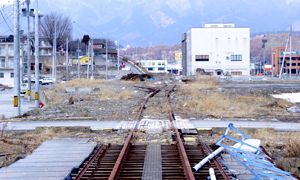
It has been over a year since the East Japan Great Earthquake and Tsunami disaster and already for the people who live in the west, beyond Tokyo, it has become something of the past long gone. However, due to the effect of the disaster, in the costal area of three main victim prefectures, the footprint of the event is felt very strongly and people continue to live in the temporary housing. People who lived in close vicinity to the Fukushima Nuclear Plantation are not able to go back to the towns where they lived. Last year, many groups and organisations conducted emergency aid work, but one year later, most organisations have stopped their aid.
I am determined to provide long-term support so that the mothers of the Tohoku disaster areas are able to give birth and bring up their children in a safe, secure and stable environment.
"Tohoku Kosodate Project" (Kosodate means parenting) is hence established with the aim that the children of Tohoku, who are to lead the future of post disaster work in the Tohoku region, will be able to become the pillars of society with a bright future.
I, the representative of the project have started "Tokyo Satogaeri Project" last year, as a member of Tokyo Midwives Association, in order to receive pregnant women and new mother evacuees in Tokyo, as well as give support to those victims. Currently, this project of accepting evacuees in Tokyo has finished, but the environment in the disasters is still very far from an ideal environment for parenting. Hence with the hope of continuing the support, J'espère has been formed.
July 2012
J'espère representative, Director of Matsugaoka Josanin, Midwife, Shoko So
J'espère members

Chief Director: Shoko So
Director of Matsugaoka Josanin (Birth Center). Works as a midwife in delivery in the clinic and also in education of pregnant women and mothers. Held a position of vice president at Tokyo Midwives Association up to May 2012. After East Japan Great Earthquake and Tsunami, started "Tokyo Satogaeri Project" accepting mother and child victims in Tokyo as well as supported local aid works. Founder of "Doula Training Course" in order to train women in supporting postnatal mothers like her own mother. Have started J'espère with the hope to build a society where all women feel supported by the entire nation, to give birth and bring up a child in safe and secure environment whether in a disaster or not. Has started "Tohoku Kosodate Project", where she is the Chief Director, in order to give support to mother and child victims in disaster areas, which is the impending task.
Director: Ryoko Yokoyama
Born 1961 in Minato-ku Tokyo. After working in Sumitomo Shoji Co, now works in Bridal Produce Company as a bridal coordinator as well as an accountant. Obtained a childminder diploma after giving birth to three children. In "Tokyo Satogaeri Project" takes part in the aid work as an accountant in charge. Director of J'espère.
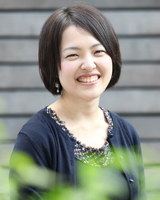
Director: Kasumi Ushida
Born 1984 in Akita-shi, Akita pref where she grows up. Graduate of Faculty of Policy Management in Keio University. Worked in IBM Japan and as a secretary-general in "Tokyo Satogaeri Project" , an aid organisation for pregnant women and mother victims of East Japan Disaster by Tokyo Midwives Association. In March 2012, formed Doula Association and holds a position of chief director and conducts trainings for doulas who support postnatal women. A mother of a child born in 2010.
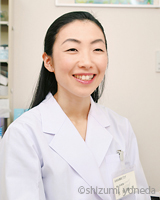
Director: Honami Yoshida
Born in Sapporo, Hokkaido Pref. After graduating from medical school at Mie University, worked as a resident or back-up doctor at Seiroka International University. After obtaining a PhD in medicine in Nagoya University in 2004, she underwent clinical training in Frankfurt, Germany and London, UK and has had her first child. Once back in Japan, involved in the formation of women's comprehensive outpatients unit at Wellness Ginza Clinic while working in obstetrics outpatients units in various local hospitals and supported midwife led labour. After the birth of third child, moved to USA with her whole family to study Public health at Graduate school in Harvard University. In 2010, gave birth to a fourth child in Boston after graduating but continued to be a research fellow in the same graduate school and travelled between Japan and USA, also in the field of clinical medicine and academia. After the East Japan Great Earthquake and Tsunami disaster, as a public health specialist, gynaecologist and obstetrician, worked in aid to support mother and child victims, conducting antenatal and postnatal home visits as well as working as a coordinator of distributing doctors and midwifes working in aid in the disaster area. During this time, felt a great empathy towards the wide scale work of J'espère and its member's family. It is like warmth towards the victims and a passionate attitude towards aid work helping mother and child victims. This experience has brought a realisation of the importance and necessity in changing approaches of aid; from "being moved/worked (by the external forces)" towards "Helping them to make their own action (in their own accord)", in order to truly contribute towards the next generation. Has been appointed as a member of the National Health and Medical Science Institute, which serves as a think tank of Ministry of Health Work and Welfare. Currently involved as a principal research officer in mother and child health system mechanism formation, research in obstetrics for wider members of the public and mother and child health education in universities while researching in to the policy of the system of mother and child victims' relief upon disasters.
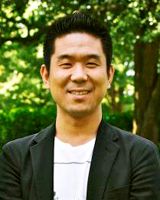
Auditor: Takuya Okamoto
Born 1977 in Osaka pref. Graduated from the Business faculty at Kansai Gakuin University. Took a year off while at university to study abroad and travel around 30 countries. After graduating, took a national licence on accountancy and worked as an auditor of Chuo Aoyama Kansa Hojin of PrincewaterhouseCoopers Group before pursuing to be a cooperate revitalisation adviser at the same company. Worked as a free lance in March 2011 before becoming a representative in the Social Venture Partners Tokyo of the same company in June; where they invest and support various social ventures. At the same time, took up the position of director in NPO Katariba (worked from June 2010) and became involved in the education project Kolabo School, which operates in the disaster areas. Pours energy into the growth and maturation of social sectors from the area of management and aid work.

